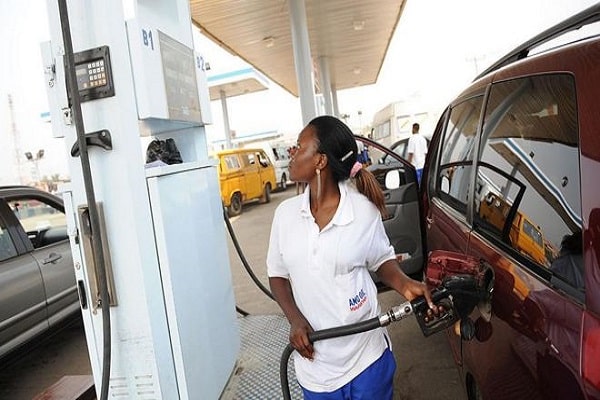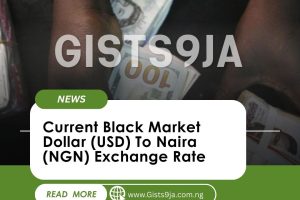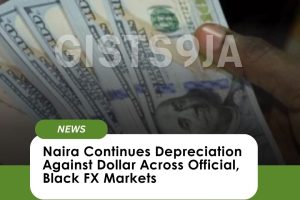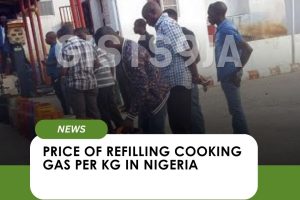
As Nigerians continue to express frustration over the recent hike in fuel prices by the Nigerian National Petroleum Company (NNPC) Limited, Naija News provides the latest updates on petrol scarcity, the fuel price increase, and reactions from both the government and citizens.
Petrol Production: Controversy Surrounds Port Harcourt Refinery and NNPCL Claims
The operational status of the recently rehabilitated Port Harcourt Refining Company has come under intense scrutiny. On Thursday, allegations surfaced that the petroleum products being loaded from the facility were not newly refined as claimed, but rather products that had been stored in the refinery’s tanks for over three years. This has reignited doubts about the refinery’s true operational capacity and its role in alleviating the country’s fuel supply challenges.
Timothy Mgbere, Secretary of the Alesa community stakeholders, criticized the Nigerian National Petroleum Company Limited (NNPCL), claiming that the refinery’s actual output capacity falls far short of the company’s assertions. According to Mgbere, the refinery, which is said to have a capacity of 60,000 barrels per day, is nowhere near full operation. He stated that only six trucks of petroleum products were loaded on Tuesday, which contradicts NNPCL’s claim that 200 trucks would be dispatched daily from the facility. This discrepancy has raised questions about the true state of the refinery’s operations, especially since it has faced repeated delays and missed deadlines, with previous attempts to restart operations failing on seven occasions.
Mgbere emphasized that the grand reopening ceremony of the refinery appeared more symbolic than substantive, with little to show in terms of actual functional output. This has led to growing skepticism in the Alesa community, located in Eleme, Rivers State, where the Port Harcourt Refinery is situated, about the refinery’s ability to meet local fuel demands.
Dangote vs NNPC: Oil Marketers Threaten Boycott Over Petrol Price
In another development, oil marketers have outlined stringent conditions for their support of the Port Harcourt Refinery, particularly in relation to the pricing of refined petroleum products. The marketers have insisted that the price of petrol from the refinery must be lower than that of the Dangote Refinery to attract their business.
A recent report indicated that the NNPCL was selling petrol at approximately N1,045 per litre, leading to concerns among marketers about the feasibility of sourcing locally produced petrol at such high prices. In response, NNPCL clarified that it has yet to release official prices for the products from the Port Harcourt Refinery, as it is still reviewing the price structure. At present, the products are only being supplied to NNPCL-owned stations, and the company’s purchasing portal remains closed.
In the meantime, oil marketers have continued to import large quantities of petrol to meet local demand. Between November 23 and November 28, oil marketers imported 105.67 million litres of petrol into the country. While NNPCL’s petrol prices remain a topic of discussion, the marketers have warned that they may have to continue relying on imported fuel if local products remain priced too high.
Petroleum Retailers Raise Concerns Over High Petrol Prices at Port Harcourt Refinery
The Petroleum Products Retail Outlets Owners Association of Nigeria (PETROAN) has raised alarms over the price of Premium Motor Spirit (PMS) produced by the newly reopened Port Harcourt Refinery. According to PETROAN, the Port Harcourt Refinery is selling petrol at N75 per litre more than the price offered by the Dangote Refinery. Dr. Joseph Obele, the association’s Public Relations Officer, highlighted this price disparity during the reopening ceremony of the refinery.
Despite acknowledging the significant strides made in revitalizing the Port Harcourt Refinery, which is now operational at 60,000 barrels per day, Dr. Obele voiced concerns over the pricing structure. He pointed out that the higher price of petrol from the Port Harcourt Refinery is a major issue for retailers and consumers alike, particularly as the country struggles with widespread fuel shortages and rising prices.
PETROAN has called on the federal government and NNPCL to address the pricing issue, urging them to ensure that the locally produced petrol is priced competitively to ease the burden on both retailers and consumers. While the restoration of the Port Harcourt Refinery is viewed as a significant step toward revitalizing Nigeria’s local petroleum production, the ongoing concerns over high fuel prices continue to weigh heavily on the public.
Conclusion
The debate surrounding Nigeria’s fuel pricing and production continues to intensify, with multiple stakeholders—ranging from local communities to oil marketers and petroleum retailers—expressing concerns over the effectiveness and pricing of the newly rehabilitated Port Harcourt Refinery. As the government works to address fuel supply issues, there remains a need for transparency in pricing and more strategic actions to ensure that the country’s fuel production can meet local demand at reasonable prices. The challenges surrounding the refinery’s operations and its pricing policies have further fueled frustrations among Nigerians, who continue to grapple with the economic implications of rising fuel costs.





